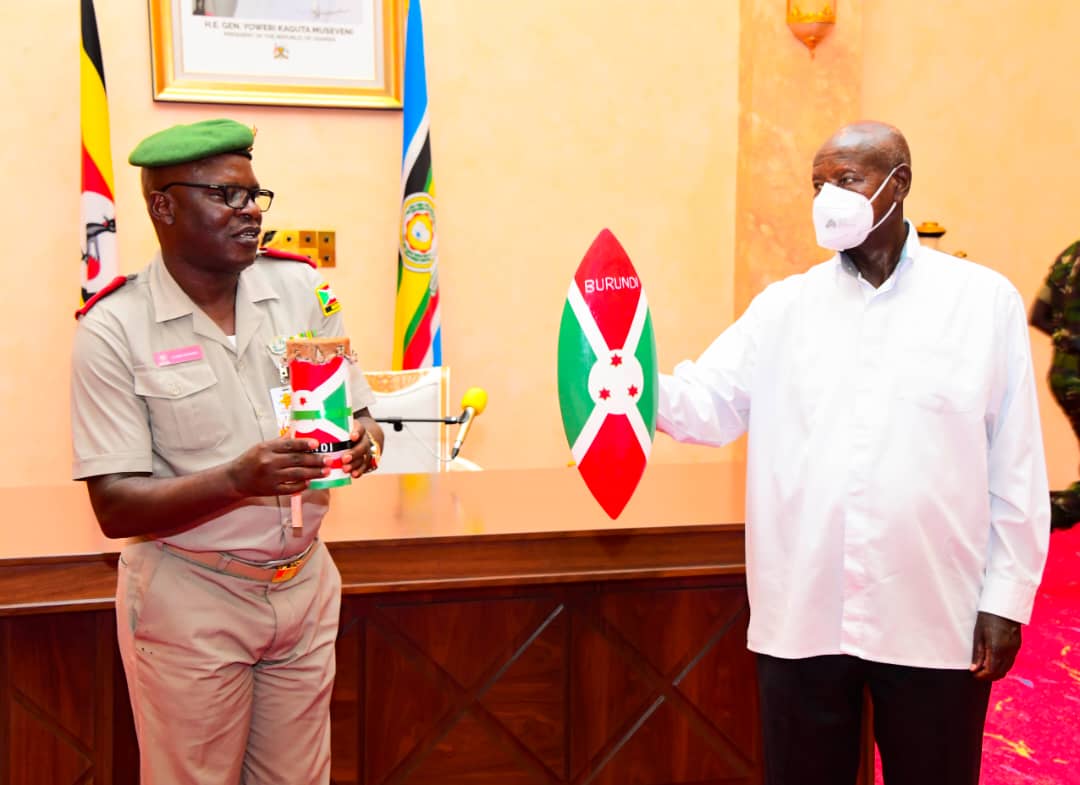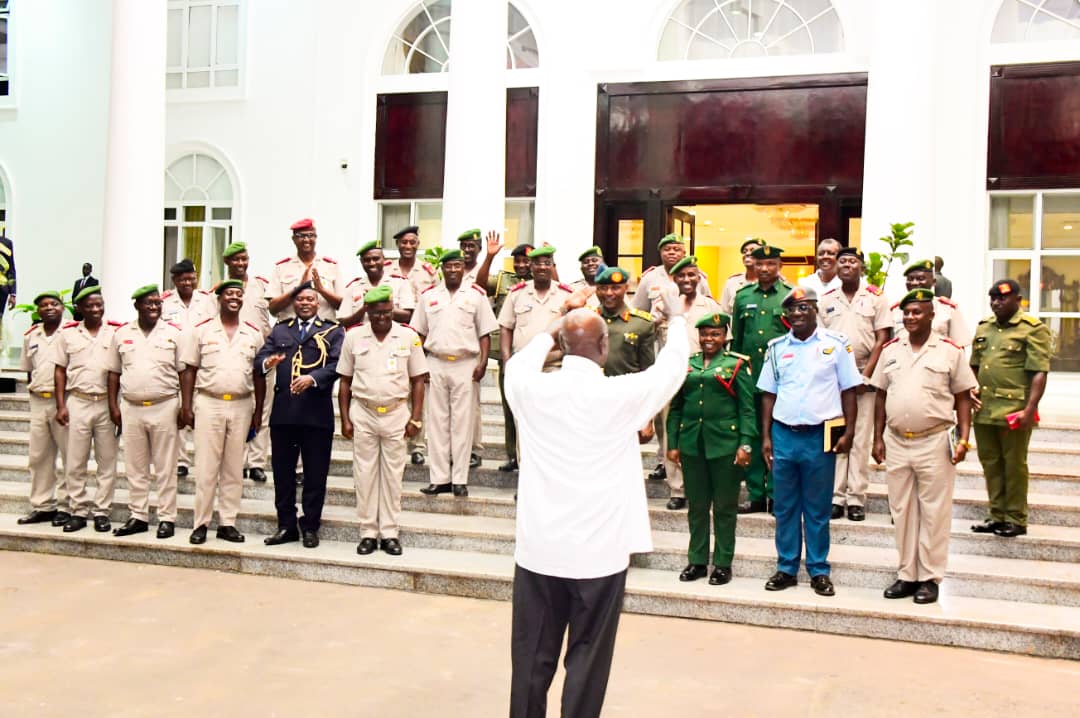President Yoweri Kaguta Museveni yesterday called on African military and political leaders to reject identity-based politics and instead embrace ideological clarity, unity, and economic transformation. The President was addressing a team of senior military officers and students from the Burundi Senior Command and Staff College who visited him at State House Entebbe.
The group of 26 officers, led by Col. Jonas Sabushimike, had come to draw lessons from Uganda’s political and socio-economic journey under the National Resistance Movement (NRM).
Drawing on decades of political leadership and revolutionary experience, President Museveni emphasized that much of Africa’s stagnation has stemmed from a flawed approach to politics, one based on tribal, religious, or racial identity. “Politics is like medicine. If you make the wrong diagnosis, you will make the wrong prescription, and the patient will not be healed. Many post-independence leaders misdiagnosed Africa’s problems by focusing on identity. They asked, ‘What tribe are you? What religion?’ instead of asking, ‘Why are our people poor? Why aren’t we prosperous?” he said.
President Museveni recalled that as a student in the 1960s, he and his colleagues rejected the politics of identity and instead pursued a deeper analysis of Uganda’s structural challenges.
He highlighted that they identified three historical missions that have since guided the NRM’s leadership: prosperity for all Ugandans, strategic security, and African integration for mutual advancement. “We asked ourselves, how can the Baganda, the Banyankole, or any other Ugandans become prosperous? You cannot achieve prosperity by begging. You need to produce a good or a service and sell it. That is how wealth is created,” he mentioned.
The President explained that even within ethnic groups, prosperity cannot be achieved if everyone produces the same goods without an external market. “If I have bananas and milk, and my neighbor has the same, who will buy from whom? Tribalism, therefore, becomes an obstacle to economic advancement. That’s why we embraced patriotism and love for Uganda—not just as sentiment, but as a strategic necessity,” he added.

President Museveni said this ideology gave birth to the first NRM principle: patriotism, because national unity enables economic exchange across regions. However, it became clear that even Uganda’s market was too small to sustain long-term growth. “When Uganda began to stabilize, we found ourselves stuck with surplus maize, milk, sugar, and bananas. That’s when we said, ‘Have you heard of Africa?’ Because if Ugandans cannot buy what you produce, your neighbors can and so came our second principle: Pan-Africanism,” he said.
He added that to truly benefit from Uganda’s and Africa’s markets, citizens must evolve beyond subsistence production, citing that realization formed the third principle: socio-economic transformation. “You cannot modernize if you are only digging for the stomach. You must also work for the pocket. Our people need to embrace modern agriculture, manufacturing, and services,” he noted.
Museveni urged the Burundian officers to take these lessons seriously and apply them in their own country’s context, stressing that a clear ideological foundation is critical for leadership, military command and national transformation.
Speaking during a meeting with the group, Brig. Gen. Saad Katemba, the Director of Training and Doctrine in the UPDF Land Forces, welcomed the delegation and praised the strong ties between Uganda and Burundi. “We are honoured to host our brothers and sisters from Burundi. This study tour is an important platform for sharing knowledge, strengthening military diplomacy, and reinforcing our collective commitment to regional peace and development,” said Brig. Gen. Katemba.
On his part, Col. Sabushimike expressed deep appreciation to President Museveni for the warm reception and the opportunity to engage with Uganda’s leadership. “It is a great honour and privilege to be received by Your Excellency. On behalf of the Commandant of the College, we are truly grateful for your hospitality, especially considering your demanding schedule,” he said. Sabushimike noted that Uganda’s commitment to regional cooperation, security, and Pan-African ideas made it a natural destination for the college’s strategic field study.
He praised the country’s role in championing socio-economic transformation and its efforts to foster lasting peace and stability across the region.




